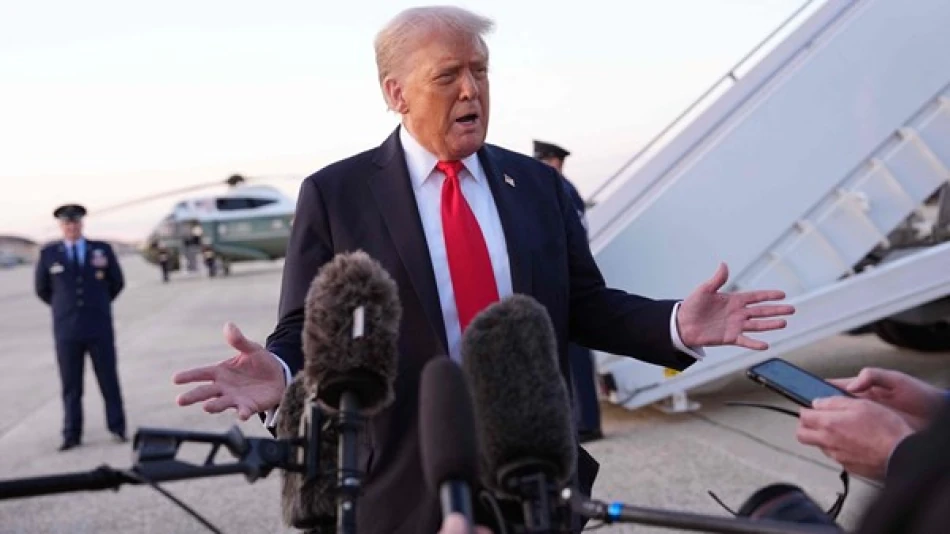
Trump to Unveil Major Decision on Chicago Action in Coming Days
Trump Signals Imminent Federal Intervention in Chicago Crime Crisis
President Donald Trump announced that a decision on potential federal action in Chicago will be made within days, escalating his administration's focus on urban crime control. Speaking to reporters at Andrews Air Force Base, Trump declared the city's violence could be resolved "very quickly" through federal intervention, marking a significant step toward direct federal involvement in local law enforcement.
The Federal Ultimatum Takes Shape
Trump's comments represent the culmination of months of public criticism directed at Chicago's handling of violent crime. "We can solve the Chicago problem very quickly. We will make a decision on how we proceed in the next day or two," the president stated, suggesting that federal resources could soon be deployed to address what he characterizes as a law enforcement crisis.
This announcement follows a pattern of Trump administration threats to intervene in cities experiencing high crime rates, but the specificity of the timeline suggests a more concrete plan than previous rhetorical flourishes.
Historical Context of Federal Urban Intervention
Federal intervention in local crime control carries significant constitutional and political implications. Previous administrations have deployed federal agents to cities during periods of civil unrest or when local authorities explicitly requested assistance, but unilateral federal action in municipal law enforcement remains relatively rare in modern American governance.
The last major federal intervention in Chicago occurred during the 1968 Democratic National Convention riots, though that situation involved federal property and national political events rather than routine crime control.
Political and Legal Ramifications
Constitutional Questions
Any federal intervention would likely face immediate legal challenges based on the Tenth Amendment, which reserves police powers to state and local governments. Legal experts suggest that federal action would need to be carefully structured around existing federal jurisdiction, such as interstate commerce or federal property protection.
Local Government Response
Chicago's political leadership has historically resisted federal intervention, viewing it as both constitutionally problematic and politically motivated. The city's response to any federal action could set precedents for how other major metropolitan areas handle similar federal pressure.
Broader Implications for Urban Policy
Trump's Chicago focus reflects a broader administration strategy of highlighting urban crime as a national issue requiring federal attention. This approach could influence how future administrations view the federal role in local law enforcement and may reshape the traditional boundaries between federal and municipal authority.
The timing of this announcement, coming amid ongoing debates over federal versus local control in various policy areas, positions Chicago as a potential test case for expanded federal involvement in traditionally local governance issues.
Most Viewed News

 Layla Al Mansoori
Layla Al Mansoori






